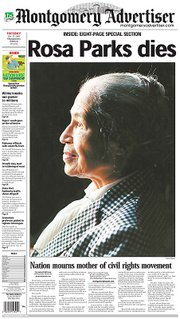Being an academician, I would like to give my opinion on why the majority of Malaysian universities are not in the ranking list of the world’s top universities.
The fall of Universiti Malaya and Universiti Sains Malaysia in the ranking list, with the exception of Universiti Kebangsaan Malaysia (UKM), of the Times Higher Education Supplement is not really a shock to me.
In fact, I feel it is quite questionable how the three universities were listed in the first place.
Most local universities nowadays don't follow the norms of a university.
They do not use paper publications and citations as the main criteria of appraisal any more.
Each year, we see professors and associate professors being appointed with hardly any good international journal publications to their credit.
I don't think citations are considered at all in appraisals in any of the local universities.
Other important criteria such as appointments to the editorial board of international journals and programme committees of international conferences weren't considered.
The local universities are more interested in participating in exhibitions such as those held in Switzerland, Britain, Germany, Korea and the United States.
They are more interested in bringing home the gold, silver and bronze medals given by the organisers, which hardly have any value.
Over the last few years, there have been many academicians who were appointed as professors and associate professors just because they obtained gold medals in these exhibitions.
How could the two or three judges who are not experts in their respective fields and who evaluate research work have so much influence on our local universities' appraisals?
Moreover, these evaluations were done within five to 10 minutes and yet we see so many local universities are so proud of the gold medal achievements from these exhibitions which are more appropriately termed as “trade fairs.”
A paper submitted to a high-level international journal would normally take weeks and months to be reviewed by experts and professors from the same discipline from well-established universities.
The paper would then need to be revised before being published, if it does not get rejected.
However, there is a high possibility that the paper might be rejected.
Compare this difficulty of getting published in high-level journals to that of getting a gold medal at these trade exhibitions.
And yet we see vice-chancellors publicly rewarding the gold medallists from these exhibitions each year.
One way to measure whether a research has made any breakthrough is to do a survey of the hundreds of university researches which won gold medals over the last few years.
How many of these researches have actually been commercialised and brought revenue to the universities?
I think the Higher Education Ministry and the Science, Technology and Innovation Ministry should stop local universities from participating in these exhibitions.
Academicians should be doing high-level academic work and not participating in trade fairs.
I want to ask whether Harvard, the Massachusetts Institute of Technology, Cambridge, Oxford or even our neighbours, the National University of Singapore and Nanyang Technological University, ever participated in these exhibitions at all to be ranked as the top universities in the world?
STRIVING FOR EXCELLENCE,
Kuala Lumpur.








